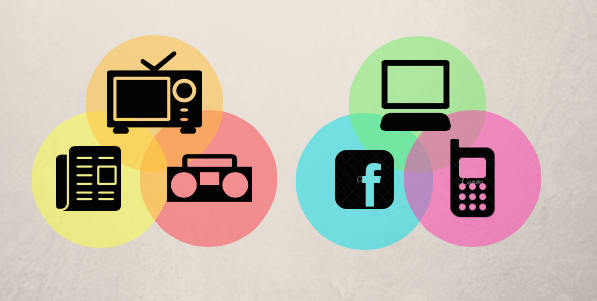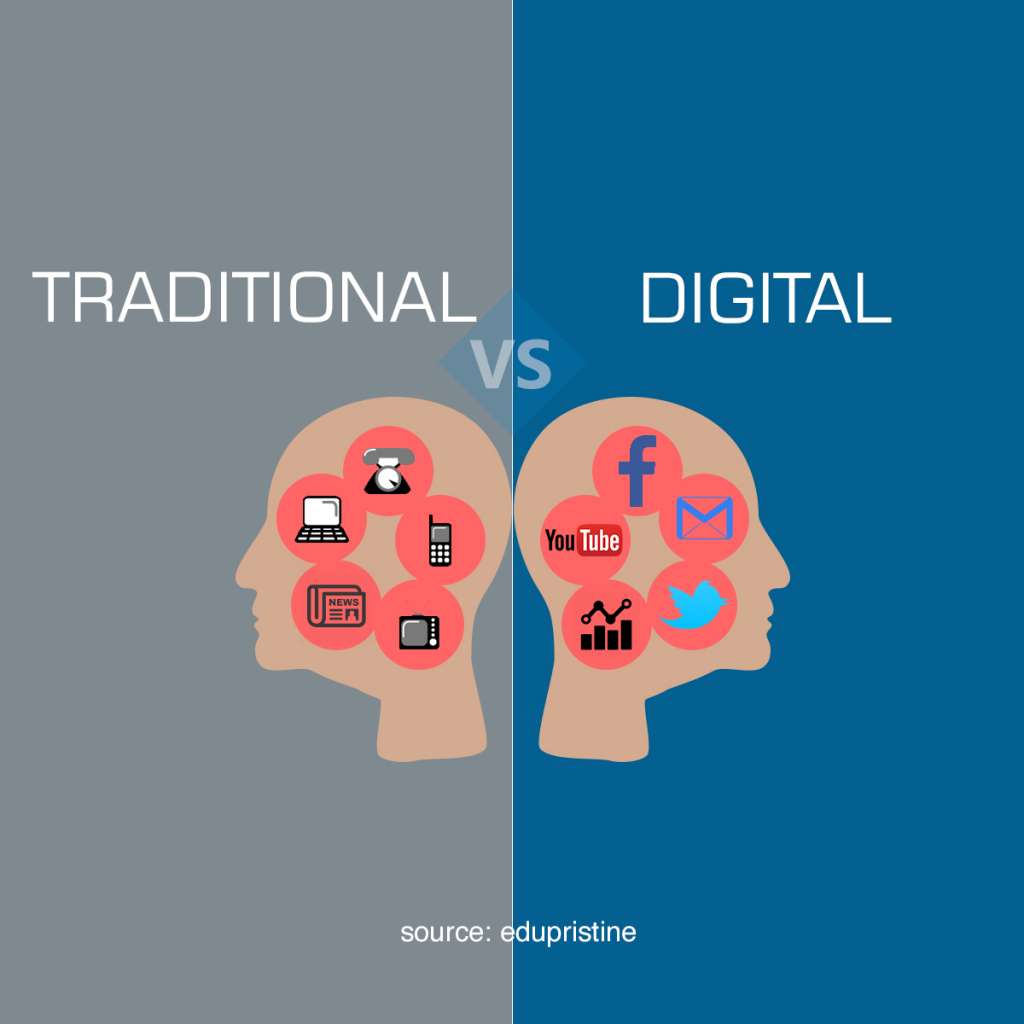For this last blog post I was inspired by our assigned presentation, for which I chose to examine the future of traditional media. The subject has way too many layers to solely tackle through a twitter thread format with a limited number of characters. Though I must add, it was a delight to narrate the issue with shorter, more precise expressions given that the direction traditional media is headed might even be more evident than I would like to think.
Mass media is an all-encompassing concept used for an array of media technologies, such as movies, television, radio, videos, music and so on. Under mass media, we now have what we call ‘traditional media’ and ‘digital media’. Traditional media refers to media technologies that have been around for almost half a century, namely newspapers, magazines, radio, billboards and all printed advertisements. Digital media, on the other hand, refers to media technologies after the age of internet and to all encoded content. These mediums include websites, social networking platforms, internet advertisements, blogs, vlogs, podcasts, and everything audio-visual put into a digital media format.

It is possible that you’ve come across discussions comparing traditional or printed media to all digital means of communication. Some aren’t afraid to claim that newspapers, printed magazines and even books will soon come to their termination; while others are courageously clinging onto the romantic idea of having something printed and tangible in their hands for the foreseeable future.
We know that nowadays almost every newspaper and magazine company prioritize an online version as well as the printed; with some existing on both mediums and some discontinuing on print due to financial concerns related to growth. Internet advertisements have been around for almost as long as anyone in my generation can remember, while still being used to seeing billboards everywhere we go. Different age groups have different methods to get informed on local and global news; the older generation (mostly Gen X and older) still preferring printed means, and the younger generation (Millennials and younger) using news apps, twitter and other websites. I would argue that radio is the first traditional medium to have a significant decline in its usage, yielding the floor first to television, then to movies, YouTube, and podcasts.
Here is my personal take on the issue:
I am a romantic myself for when it comes to collectible printed material; anything from a book that feels (and smells) very good in between my hands, to a printed magazine that I can go over and over from cover to back. Print not only allows an intimate interaction through writing or drawing on it, but also creates a sense of belonging to the artistic content produced by the team who made an actual physical object come to life. Although digital media, in the broadest sense, facilitates a day-to-day way of communicating, getting informed and entertained; I tend to see traditional media as the wise mother who gave birth to all the pleasure around visual content consumption.
For instance, our household used to get daily newspaper deliveries, until my parents realized they could easily follow the news on their newly-bought iPads and smartphones. Now that I look back, that was a major turning point in our lives. And if I had to be realistic, the demand for traditional means of media will come to an end once the generation who grew up with it in the first place leaves our planet for good.
By generation I mean:
- Gen Z: born in 1996 and after
- Millennials or Gen Y: born between 1977 and 1995
- Generation X: born between 1965 and 1976
- Baby Boomers: born between 1946 and 1964
- Traditionalists or Silent Generation: born in 1945 and before
I would argue that once the oldest millennials reach to their 90s (or 100s for that matter, since we barely have an idea about the future of human longevity), digital media would be the superior choice to opt for. For this we still have a good 50 years ahead, so still half a century. It might very well be the case that when the dominant age gap present on the world consists of Gen Z, traditional media won’t be around given that those who belong to Gen Z grew up with being accustomed to digital media more so than traditional media. It’s simple economics: when there’s no demand, there’ll be no supply either.
Where do you see the future of traditional media? Do you still see yourself reaching for your favorite magazine at the bookstore? Do you still imagine our future streets to be filled with all kinds of billboard ads? Do you feel like letting go of some beloved objects we nowadays have the luxury to literally hold in our hands?



I am always torn between the fact I much prefer to read from a book, or text printed on paper, compared to non-stop watching a screen. But then again the environment might disagree. I think there will be multiple factors playing into which direction we will sway. Regardless I do feel (or hope) we won’t go fully digital. We are already so dependent and I am sure that will only increase…
Zeynep, I absolutely enjoyed reading your blog post, maybe because of a personal interest in the topic or the flow of your writing. Isn’t it a sad story, at least personally, a future with only digital media and the termination of traditional media channels sound terrifying to me. I am someone who loves going to different bookstores, holding them in my hand one by one; or going through records, CDs etc.. I still read everything while underlining the parts that I liked and collecting them for later. It just gives me a sense of belonging, and maybe that’s why the digital copies of the newspapers or magazines sound so superficial to me. I must say that there is a part of me who also things that the traditional media will leave its place to digital media once and for all at some point and later generations won’t have the same experiences or joy as we do. But there is also another part of me believing in other romantics who also enjoy doing things in a traditional way So I guess, we will have to wait and see what happens next.